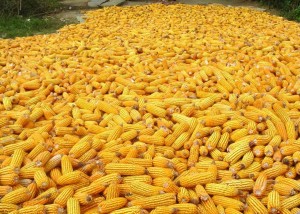Philippine News Agency
THE country’s biggest business organization, the Philippine Chamber of Commerce and Industry (PCCI), is backing the government’s policy of allowing foreign investments in the country’s big plantations, as long as the investors do not violate Philippine laws.
PCCI vice president for agriculture Bobby Amores expressed the group’s stand during an open forum announcing the holding of the 2009 Philippine Business Conference on October 20 and 21.
The question was raised due to a growing debate on whether the Philippines will open its doors to the raising of food and other farm crops like palm oil in large plantations by big companies.? Investors with deep pockets from Malaysia, China, South Korea and several countries in the Middle East have been on the prowl since last year for large tracks of land in the country to raise crops that they plan to export to their home countries.
The latest that hit the news was a 46,000-hectare land in Mindoro which a South Korean private company leased from owners. The deal hit a snag when it was found that the investors did not consult the concerned government agencies like the Department of Trade and Industry and the Department of Agriculture (DA).
“The investors should have consulted those agencies to be able to comply with Philippine laws,” Amores said. “If they organized a corporation which is 60-percent owned by local investors, they would have complied with the strict provisions of the Constitution on land ownership.”
Amores, who also sits as a trustee of the Philippine Exporters Confederation Inc. and head of the Philippine Food Processors and Exporters Confederation, said there is nothing to fear on foreign investments in agriculture to bolster the country’s food exports.
“The problem with our agriculture policy,” he observed, “is the government’s fixation with raising rice and corn at the expense of other crops that could bring more income to farmers.”?
“Foreign and local investors could bridge that gap,” he explained.
The new interest in agribusiness from foreign players came on the heels of the rice crisis last year when international prices hit $1,000 per ton. This turned out to be a bonanza for farmers in rice-exporting countries like Vietnam and Thailand.
Foreign investors that have touched base with the DA have been more keen at producing high-value crops like palm oil and rubber for Malaysia, fruits and poultry for Middle Eastern investors, tropical fruits and vegetables for the Koreans, and raw materials for biofuels for transnational green companies.
The DA has offered big areas of idle government lands for development while some critics have expressed concern that the entry of foreign investors, intent at selling what they produce to their home markets, might undermine the country’s bid to be self-sufficient in food.
The Philippines has long become import-dependent in feeding its 90 million citizens, exemplified by the importation of over 2 million tons of rice a year. (PNA)













